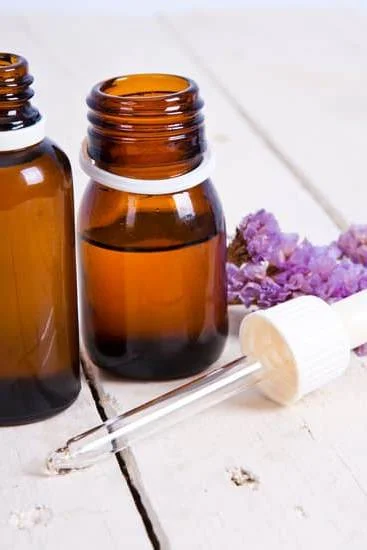Aromatherapy with eucalyptus has been used for centuries for its various health benefits and soothing effects. Eucalyptus essential oil is known for its refreshing and invigorating scent, making it a popular choice for aromatherapy practices. In this article, we will explore the history and overview of using eucalyptus in aromatherapy, as well as the wide range of benefits it offers for overall health and well-being.
Eucalyptus has been a staple in traditional medicine and holistic practices for its therapeutic properties. From relieving respiratory issues to promoting relaxation and mental clarity, eucalyptus aromatherapy has become an essential part of many people’s self-care routines. This section will provide insights into the origins of using eucalyptus in aromatherapy and how it has evolved over time to become a popular choice in natural wellness treatments.
We will delve into the various types of eucalyptus essential oils that are best suited for aromatherapy, as well as the different methods of application such as diffusers, massage oils, and bath soaks. Whether you are seeking relief from cold symptoms or simply looking to elevate your mood, eucalyptus aromatherapy offers a versatile and effective solution. Keep reading to discover the many ways in which incorporating eucalyptus into your aromatherapy practice can benefit your physical, emotional, and mental health.
The Benefits of Eucalyptus Aromatherapy
Aromatherapy with eucalyptus has been used for centuries to improve health and well-being. Eucalyptus essential oil is derived from the leaves of the eucalyptus tree, native to Australia, and is known for its refreshing and invigorating scent. This section will explore the various benefits of eucalyptus aromatherapy and how it can positively impact your overall health.
Respiratory Health
One of the most well-known benefits of eucalyptus aromatherapy is its ability to support respiratory health. The oil contains compounds that have been shown to help open up the airways, making it easier to breathe. Whether used in a diffuser or added to a steam treatment, inhaling eucalyptus essential oil can provide relief from congestion, coughs, and other respiratory issues.
Immune Support
Eucalyptus aromatherapy is also known for its immune-boosting properties. The oil has antiviral and antibacterial qualities that can help fend off illness and infections. By incorporating eucalyptus essential oil into your daily routine, you may be able to support your body’s natural defenses and reduce the risk of falling ill.
Mental Clarity
In addition to its physical benefits, eucalyptus aromatherapy can also have a positive impact on mental well-being. The refreshing scent of eucalyptus has been shown to promote alertness and concentration, making it an ideal choice for times when you need a mental boost. Whether used in a diffuser during work or study sessions, eucalyptus essential oil can help improve focus and mental clarity.
Overall, the benefits of eucalyptus aromatherapy are wide-ranging and have the potential to improve both physical and mental well-being. From supporting respiratory health to enhancing mental clarity, incorporating this versatile essential oil into your daily routine may lead to significant improvements in overall health.
Different Types of Eucalyptus Essential Oils
When it comes to aromatherapy with eucalyptus, there are several different types of eucalyptus essential oils to choose from. Each type has its own unique properties and benefits, making it important to understand the differences between them before using them for aromatherapy purposes.
Here are some of the most popular types of eucalyptus essential oils and their specific uses:
1. Eucalyptus Globulus: This is the most common type of eucalyptus essential oil and is known for its strong, menthol-like scent. It is often used to help clear the airways and promote respiratory health, making it a great choice for diffusing during cold and flu season.
2. Eucalyptus Radiata: This variety of eucalyptus essential oil has a slightly milder aroma compared to Eucalyptus Globulus. It is often used for its antibacterial properties and is popular for helping boost the immune system.
3. Eucalyptus Citriodora: Also known as Lemon Eucalyptus, this type of eucalyptus essential oil has a citrusy scent and is often used as an insect repellent. It can also be beneficial for reducing muscle tension and boosting mood.
4. Eucalyptus Smithii: This variety has a softer, sweeter aroma compared to other types of eucalyptus essential oils. It is often used for its anti-inflammatory properties and can be beneficial for supporting respiratory health.
Depending on your specific needs and preferences, you may want to experiment with different types of eucalyptus essential oils to find the one that works best for you when practicing aromatherapy with eucalyptus. Always make sure to use high-quality, pure essential oils from reputable sources to ensure the best results.
Methods of Aromatherapy With Eucalyptus
Using Diffusers
One popular method of enjoying the benefits of eucalyptus aromatherapy is through the use of diffusers. These devices are specifically designed to disperse essential oils into the air, allowing you to inhale the beneficial compounds. By adding a few drops of eucalyptus essential oil to a diffuser and letting it run for a designated period of time, you can create a calming and refreshing atmosphere in your home or workspace.
Massage Oils
Another effective way to incorporate eucalyptus aromatherapy into your wellness routine is through the use of massage oils. Eucalyptus essential oil can be diluted with a carrier oil such as coconut or jojoba oil and gently massaged onto the skin. This not only provides relaxation and relief for sore muscles but also allows the aromatic compounds to be absorbed through the skin, providing their therapeutic benefits.
Bath Soaks
For a truly indulgent experience, consider adding eucalyptus essential oil to your bath routine. By combining a few drops of eucalyptus oil with Epsom salts or another carrier such as coconut milk, you can create a luxurious bath soak that promotes relaxation, relieves congestion, and soothes both the body and mind. The warm water helps to release the aromatic compounds into the air while allowing them to be absorbed by the skin at the same time.
By incorporating these methods of aromatherapy with eucalyptus into your daily self-care rituals, you can enhance your overall well-being and enjoy the numerous benefits associated with this powerful essential oil. Whether it’s through diffusers, massage oils, or bath soaks, there are several ways to experience and appreciate all that eucalyptus aromatherapy has to offer.
Eucalyptus Aromatherapy Recipes
Eucalyptus essential oil is known for its refreshing and invigorating aroma. It is commonly used in aromatherapy to promote relaxation, relieve symptoms of the common cold, and improve mental clarity. By creating your own DIY blends using eucalyptus essential oil, you can experience these benefits in the comfort of your own home.
One popular recipe for relaxation involves combining eucalyptus with lavender essential oil. Lavender has calming properties that can help reduce stress and anxiety, making it the perfect complement to the revitalizing scent of eucalyptus. Simply add a few drops of each oil to a diffuser or combine them with a carrier oil for a soothing massage blend.
For cold relief, eucalyptus can be blended with peppermint and tea tree essential oils. Peppermint provides a cooling sensation that can help clear nasal congestion, while tea tree oil has antibacterial and antiviral properties that can support the immune system. This combination can be added to a steaming bowl of water for inhalation or diluted in a carrier oil for chest rubs.
When it comes to promoting mental clarity, combining eucalyptus with citrus oils such as lemon or bergamot can provide an uplifting and energizing effect. The citrus scents are known for their ability to boost mood and concentration, making them an excellent choice for creating a refreshing atmosphere during work or study sessions.
| Eucalyptus Aromatherapy Recipe | Benefits |
|---|---|
| Relaxation Blend (Eucalyptus + Lavender) | Promotes stress reduction and anxiety relief |
| Cold Relief Blend (Eucalyptus + Peppermint + Tea Tree) | Clears nasal congestion and supports the immune system |
| Mental Clarity Blend (Eucalyptus + Citrus Oils) | Provides an uplifting and energizing effect for improved focus |
Safety Precautions and Considerations for Aromatherapy With Eucalyptus
Aromatherapy with eucalyptus is a widely used practice that offers numerous benefits for health and well-being. However, it is important to use eucalyptus essential oils safely and effectively to avoid any potential risks or adverse reactions. Here are some safety precautions and considerations for using aromatherapy with eucalyptus:
- Consult a healthcare professional: Before using eucalyptus essential oil for aromatherapy, it’s essential to consult with a healthcare professional, especially if you have any underlying health conditions or are pregnant or nursing.
- Dilution: Eucalyptus essential oil should always be diluted before applying it to the skin. Undiluted essential oils can cause skin irritation or sensitization. It is recommended to mix it with a carrier oil such as sweet almond, coconut, or jojoba oil.
- Avoid ingesting: Eucalyptus essential oil should never be ingested as it can be toxic when consumed internally. It is meant for external use only.
- Patch test: Before using eucalyptus essential oil on a larger area of the skin, perform a patch test on a small area to check for any allergic reactions or sensitivity.
In addition to these safety precautions, there are also considerations for using eucalyptus essential oils in specific situations:
- Children and pets: Eucalyptus essential oil should be kept out of reach of children, and extra caution should be taken when using it around pets as it can be toxic to them if ingested.
- Asthma and respiratory conditions: Individuals with asthma or other respiratory conditions should use eucalyptus essential oil with caution, as the strong aroma could trigger respiratory issues.
- Storage: Properly store eucalyptus essential oil in a cool, dark place away from direct sunlight and heat to maintain its quality and potency over time.
By following these safety precautions and considerations, you can enjoy the benefits of aromatherapy with eucalyptus in a safe and effective manner, promoting overall wellness without any undue risk.
Eucalyptus Aromatherapy and Mental Health
Aromatherapy with eucalyptus can have significant benefits for mental health, particularly in helping to alleviate stress, anxiety, and depression. The use of eucalyptus essential oils in aromatherapy has been shown to have a calming and soothing effect on the mind and body, making it an effective natural remedy for these common mental health concerns.
Eucalyptus oil is known for its refreshing and invigorating scent, which can help uplift the mood and provide relief from feelings of tension and anxiety. When used in aromatherapy, the inhalation of eucalyptus essential oil can promote relaxation and reduce symptoms of stress. In addition, the anti-inflammatory properties of eucalyptus oil may also contribute to its ability to ease mental and emotional distress.
Recent studies have also shown that eucalyptus aromatherapy can be beneficial for individuals dealing with depression. The aromatic compounds in eucalyptus oil stimulate the brain’s limbic system, which is involved in emotional processing. This can lead to an improvement in mood and a reduction in depressive symptoms when used consistently as part of a holistic approach to managing mental health.
Furthermore, incorporating eucalyptus aromatherapy into daily routines through methods such as diffusers, massage oils, or bath soaks can provide ongoing support for mental well-being. Whether it’s through creating a relaxing atmosphere at home or practicing self-care rituals with eucalyptus-infused products, this versatile essential oil has the potential to positively impact mental health.
| Benefit | Data |
|---|---|
| Reduction of stress | Eucalyptus aroma helps promote relaxation and reduce stress levels. |
| Anxiety relief | Inhalation of eucalyptus essential oil can provide relief from tension and anxiety symptoms. |
| Depression management | The aromatic compounds in eucalyptus oil stimulate emotional processing areas in the brain, potentially leading to mood improvement and reduced depressive symptoms. |
Conclusion
In conclusion, aromatherapy with eucalyptus offers a myriad of benefits for both physical and mental well-being. From its historical use as a traditional medicine to its modern-day application in stress relief and relaxation, eucalyptus essential oil has proven to be a versatile and effective tool for improving health. Whether through diffusers, massage oils, or bath soaks, the methods of using eucalyptus aromatherapy are varied and accessible to anyone seeking its therapeutic properties.
The versatility of eucalyptus essential oil allows individuals to tailor their aromatherapy experience to their specific needs. Whether it’s creating DIY blends for relaxation, cold relief, or mental clarity, there are endless possibilities for incorporating eucalyptus into one’s self-care routine. Its effectiveness in alleviating stress, anxiety, and depression further underscores its value as a natural remedy for promoting mental health.
Amidst the benefits of eucalyptus aromatherapy, it is important to note the safety precautions and considerations for its use. Proper dilution and usage guidelines are crucial to ensure that individuals can enjoy the benefits of eucalyptus essential oil without adverse effects. Overall, the rich history and proven benefits of aromatherapy with eucalyptus make it a valuable asset in promoting holistic well-being for people of all ages.
Frequently Asked Questions
What Does Eucalyptus Do in Aromatherapy?
Eucalyptus in aromatherapy is known for its refreshing and invigorating scent that can help clear the mind and promote mental clarity. It is also believed to have antibacterial and decongestant properties, making it useful for respiratory issues.
Is Inhaling Eucalyptus Oil Good for You?
Inhaling eucalyptus oil can be beneficial for respiratory health. The oil has natural decongestant and expectorant properties that can help clear sinuses and relieve symptoms of coughs and colds. However, it’s important to use it carefully as it can be toxic if ingested.
What Does the Smell of Eucalyptus Do for You?
The smell of eucalyptus is often associated with a feeling of being refreshed and rejuvenated. It can help clear the airways, improve breathing, and provide a sense of alertness. Some people also find the scent uplifting and energizing, making it a popular choice in aromatherapy.

Are you looking for a natural way to improve your health and wellbeing?
If so, aromatherapy may be the answer for you.





